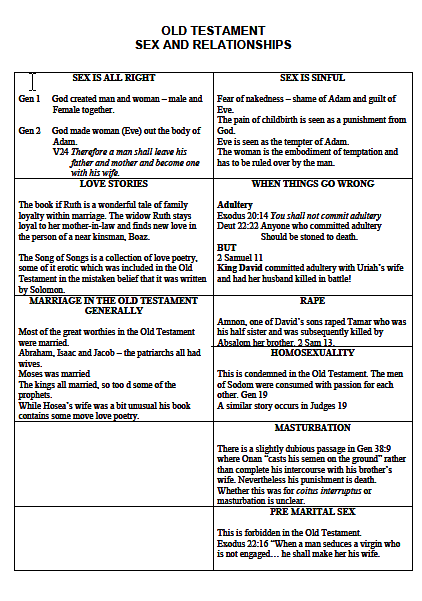The decisions for and against religious experience are dealt with quite well in the text books. It is just a question of noting those scholars who are disposed to believing these happening and those who feel that they lack validity. The skill in this area is remembering how different critics present their cases.
Those in support of religious experience.
William James
James’ book Varieties of Religious Experience 1902 was a massive piece of  research. He had already made a name for himself with his first book Principles of Psychology 1890. He felt that religious experiences were examples of psychological phenomena. The experiences themselves were part of a person’s psychological makeup. These experiences were real to the person who had them and to a large extent were self-authenticating. Even so he considered that they were central to religious belief and a primary source of religious belief, but he stopped short of saying that they proved the existence of God.
research. He had already made a name for himself with his first book Principles of Psychology 1890. He felt that religious experiences were examples of psychological phenomena. The experiences themselves were part of a person’s psychological makeup. These experiences were real to the person who had them and to a large extent were self-authenticating. Even so he considered that they were central to religious belief and a primary source of religious belief, but he stopped short of saying that they proved the existence of God.
1. Ineffable – religious experiences defied description using ordinary terms.
2. Noetic – they dispensed a knowledge of God.
3. Transient – the events passed swiftly and were rarely permanent.
4. Passive – The person seeing the vision of having an experience was a bystander and an observer.
Critics of James
1. It is suggested that religious experiences are similar to hallucinations caused by drugs. Books usually suggest LSD. Note also the Hindu deity Soma which appears as an unidentified plant which produced a juice drunk by the priests. It was thought to produce a hallucinogenic effect. The drinking of this enabled the person making the sacrifice to make contact with the God Soma.
2. Some critics feel that James’ model was the wrong way round. Instead of religious experience being a source of religious belief, they felt that religious experiences happen to religious people. In reality there are plenty of examples of both of these happening.
3. JL Mackie was a critic of the mystics and those who had mystical experiences. He felt that these could be accounted for by the psychological character of the individual.
William Alston – Religious Experience as Perception of God
Alston describes what he calls his “Theory of Appearing”.
People can have an experience of God in the same way that they have any other experience. We do not doubt a person’s observations – “I have seen a red car”
Why should critics disbelieve statements of religious experience?
Verification is more difficult, but there are enough people out there who have religious experiences and one experience could be checked against others.
Critics
1. This still does not tell us that the experiences come from God.
Richard Swinburne – Is there a God pp113-121
Swinburne has a very straightforward classification of religious experiences
Public experiences
1. Ordinary experiences – where a person sees a natural event and endows it with special significance. Seeing God through nature, a beautiful view etc.
2. Extraordinary experiences – where a specific event contrary to what one expects brings an awareness of God. Eg a miraculous healing.
Private experiences
1. One which is described in ordinary language – dreams described in the Bible such as the dreams of Joseph in Matthew 2.
2. Experiences which are beyond description – see the language used by Mother Julian of Norwich or St Teresa of Avila – ecstatic experiences etc.
3. Non-specific experiences – those mystics who see the whole of life as an experience from God.
On the verification of religious experiences Swinburne suggests two principles
1. The principle of credulity – is the account of the experience credible with what we know about the person describing it and what we understand about the nature of God.
2. The principle of sufficient testimony – what is the experience backed up by.
Swinburne makes the point that most reports of religious experience rely upon the person involved recognising the nature of the experience. Therefore it is helpful/necessary for such a person already to have beliefs that would support the happening. Swinburne would go one step further and say that taken with other evidence of God’s existence, religious experiences make kit likely that God exists.
Critics
1. There is of course the counter factual argument
If experiences of God are grounds for the existence of God –
Are the experiences of the absence of God good grounds for the non-existence of God? Devout atheists who have searched for God and found nothing may want to say this.
Those who do not accept that there are religious experiences
Physiological challenges
Are the people who claim to have religious experiences suffering from some physical condition which induces such feelings.
There have been those who wondered if St Paul was an epileptic and the event described in the New Testament on the road to Damascus was nothing more than an epileptic fit.
Brain tumours may bring about irrational behaviour and may induce delusions.
Drinking soma was also known to inspire hallucinations.
This challenge is worth mentioning but it is unlikely to be the cause of all religious experiences.
Psychological challenge
This is a much more serious challenge. William James thought that the happenings were located in a person’s subconscious.
Freud argued that religion is an illusion. It expresses a person’s needs and desires.
Be a bit wary of Freud though, many if his ideas are no longer thought to be correct.
Michael Martin is quite good on this argument Philosophy of Religion Selected Readings pp41ff.
Sociological challenge
The challenge of sociology to religious thinking used to be on the AS syllabus. It  was removed at the last revision of the work you have to do. One school text book really goes to town on Karl Marx and explains in great depth his objections to the Christian religion. In reality all you need to know is that Marx objected violently to the Christian Church and Christian teaching, which he thought had departed radically from the simple teachings of Jesus of Nazareth.
was removed at the last revision of the work you have to do. One school text book really goes to town on Karl Marx and explains in great depth his objections to the Christian religion. In reality all you need to know is that Marx objected violently to the Christian Church and Christian teaching, which he thought had departed radically from the simple teachings of Jesus of Nazareth.
Marx would think that a religious experience would have little to do with God. It was more likely to be the product of a repressed individual, whose mind had been affected by the dubious teachings of the church.
Critics
1. Supporters of religious experience would want to say that the origin of such an experience is God and not society.
Diversity and Conflict
If religious experience comes from God it seems strange that the experiences manifest themselves in accordance with an established religion. Christians see visions of Mary and the saints, Muhammad had messages from Allah, and Hindus see Shiva or Lakshmi. It is generally agreed that Christians do not see Shiva and visions of the Virgin Mary are not experienced in Hindu temples.
It is also true to say that many Christians believe that truth claims about the nature of Christianity are revealed in the apparitions – eg St Bernadette who claimed that she was told by the lady at the spring “I am the Immaculate Conception.” No doubt many Hindus base their faith on religious experiences they receive at shrines.






